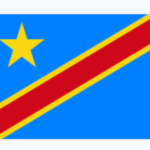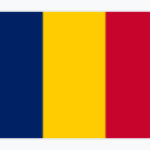Comoros is a fascinating country that consists of three main islands and several smaller ones in the Indian Ocean, off the coast of East Africa. It is one of the few countries in the world that is entirely in the Southern Hemisphere, and the only one in the Arab League. Comoros has a rich and diverse culture that blends African, Arabic, Malagasy, and French influences, and a history that spans centuries of trade, migration, and political upheaval.
Comoros became independent from France in 1975, after a long struggle that involved several coups and crises. The country is now a federal presidential republic, with a constitution that recognizes Sunni Islam as the official state religion. The current president is Azali Assoumani, who was reelected in 2019 amid allegations of fraud and protests. Comoros is a member of several international organizations, such as the African Union, the Organisation of Islamic Cooperation, the Organisation internationale de la Francophonie, and the Indian Ocean Commission.
The capital and largest city of Comoros is Moroni, which is located on the island of Ngazidja (also known as Grande Comore). Moroni is a picturesque city that overlooks a volcanic bay and features several landmarks, such as the Old Friday Mosque, the National Museum, and the Badjanani Palace. The other two main islands are Ndzwani (also known as Anjouan) and Mwali (also known as Mohéli), which have their own capitals and administrations. The islands are known for their scenic beauty, biodiversity, and fragrant plant life, earning them the nickname of “the perfumed islands”.
One of the major challenges that Comoros faces is the dispute over the island of Mayotte, which is claimed by Comoros but administered by France as an overseas department. Mayotte voted against independence from France in 1974 and 1976, and became an integral part of France in 2011. Comoros considers Mayotte as its fourth island and has repeatedly called for its reunification. France has vetoed several UN resolutions that would affirm Comorian sovereignty over Mayotte, and maintains a military presence on the island. The dispute has strained the relations between Comoros and France, as well as between Comoros and its neighboring countries.
Comoros is a developing country that faces many economic and social challenges, such as poverty, unemployment, inequality, corruption, environmental degradation, and health issues. The country relies heavily on remittances from its diaspora, foreign aid, tourism, agriculture, and fishing. Some of its main exports are vanilla, cloves, ylang-ylang, and coconuts. Comoros has a young and growing population of about 850,000 people, who speak three official languages: Comorian (Shikomori), French, and Arabic. The country has a rich cultural heritage that includes music, dance, literature, cuisine, and crafts.
Comoros is a country that deserves more attention and appreciation for its unique identity, diversity, and potential. It is a country that has overcome many difficulties and strives for peace and development. It is a country that offers many opportunities for discovery and learning for those who are interested in its history, culture, and nature.








